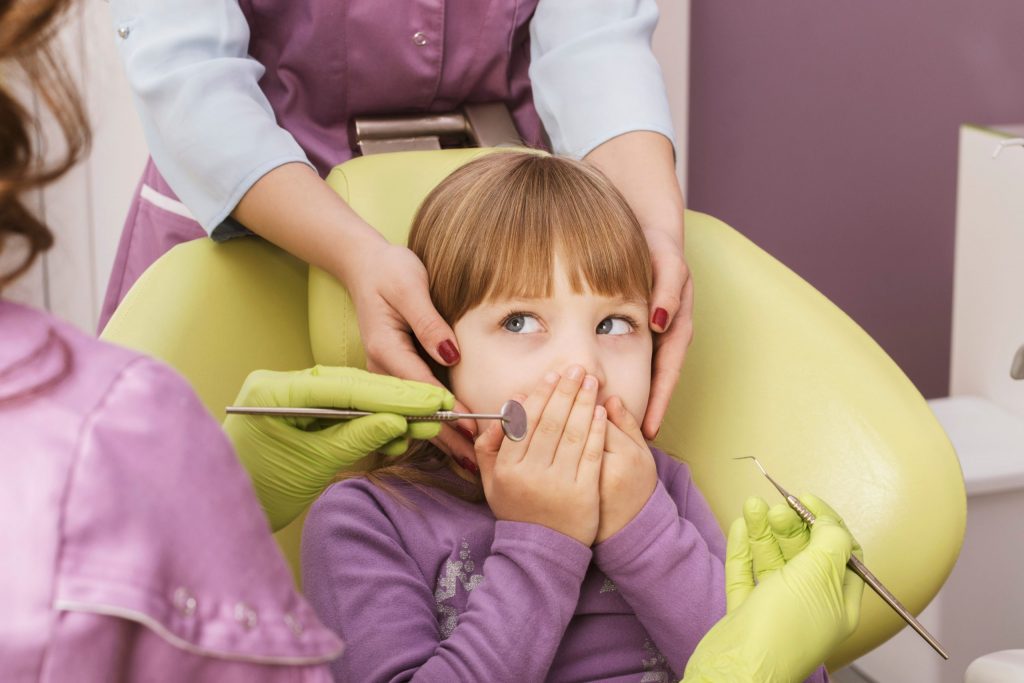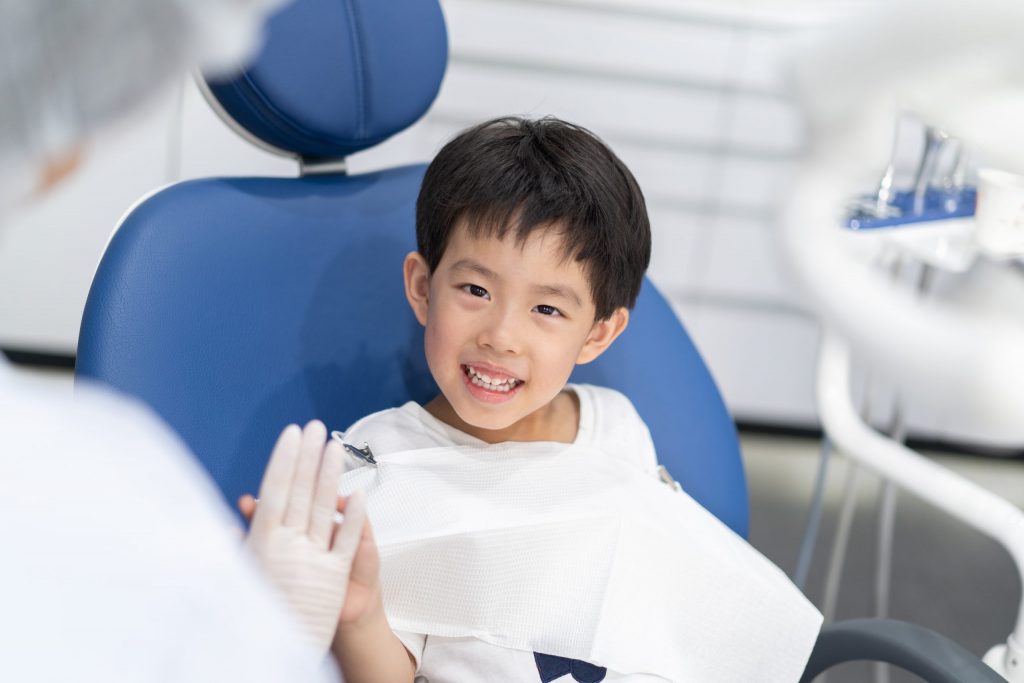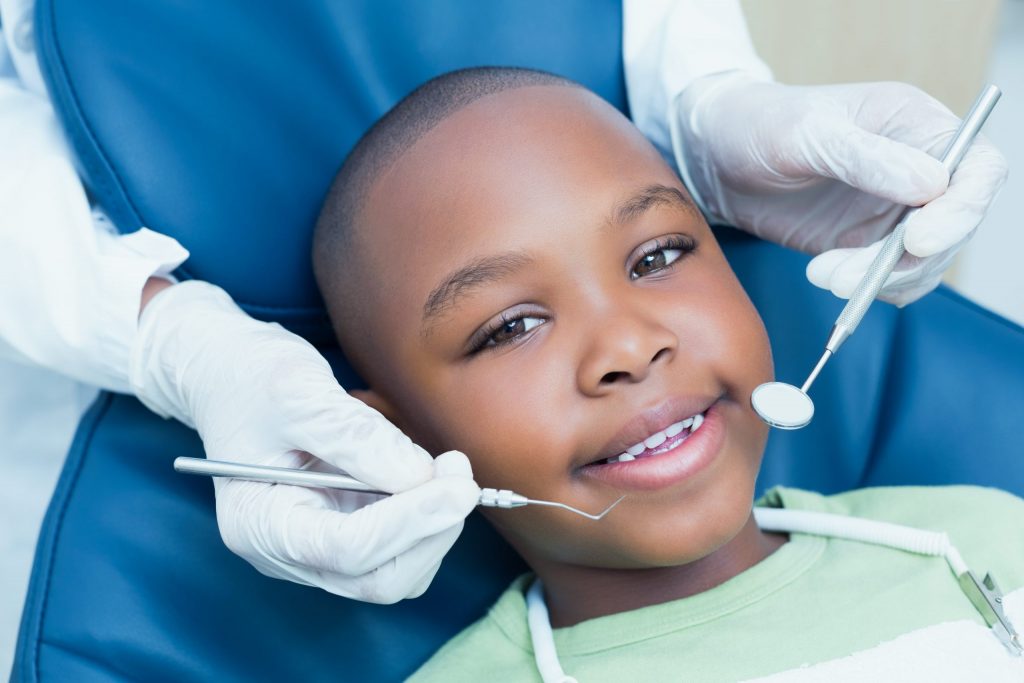Summer Smiles Discount
Save Up to 15% On 1 Treatment Item!
DOWNLOAD COUPONDoes your child worry about or fear visiting the dentist? They aren’t alone. Pediatric dentist anxiety is a common condition, affecting an estimated 9% of children and adolescents.
While common, pediatric dentist anxiety, sometimes called dental fear and anxiety (DFA), is also serious. When fear keeps children from the dentist’s office, they miss routine checkups and cleanings. Missed visits can lead to plaque and tartar building up. This buildup can cause cavities, gum disease, and other oral health problems.
These problems can negatively affect their overall health, academic performance, and social development. And the resulting discomfort and pain can further increase a child’s fear of going to the dentist.
Breaking the vicious cycle of dental anxiety is critical. The pediatric dentists at Penn Dental Family Practice (PDFP) in Philadelphia are experts in creating a positive, comfortable environment that puts younger patients at ease. They use proven techniques to help young patients lower their anxiety and overcome their fear.
 Signs and Symptoms of Pediatric Dentist Anxiety
Signs and Symptoms of Pediatric Dentist AnxietyPediatric dentist anxiety can manifest in several ways.
Mild symptoms may include:
When more severe, the condition rises to the level of dental phobia and anxiety. Even the mention of a dental visit can trigger this dentophobia. It can cause such physical symptoms as:
A variety of factors can cause fear of dental visits, including:
Unknown situations can be scary. Children new to dental procedures or who haven’t seen a dentist in a long time may experience natural fear and anxiety.
Several dental instruments are sharp and may look scary. Negative stereotypes in popular culture of dentists as scary, sadistic figures can reinforce an association with pain. Children may also hear adults complain about painful dental visits.
Sitting in an unfamiliar chair with a stranger poking around the mouth can intimidate even adults. How much more might it intimidate children? Feeling like they aren’t in control of their bodies or the situation can make children feel uneasy.
If children’s past dental experiences have been negative—including painful treatments, harsh or dismissive words, or a lack of comfort measures when the child needed them—long-lasting dental phobia and anxiety may result. Additionally, traumatic experiences unrelated to dentists, such as abuse at the hands of adults, can contribute to pediatric dentist anxiety.
Some children with sensory processing disorder may have difficulty tolerating certain sensations, such as the dental drill’s sound. Other children may have an anxiety disorder that contributes to pediatric dentist anxiety. For instance, a generalized anxiety disorder can cause children to worry about dental procedures and escalate their anxiety to panic attacks.
Caregivers and dental professionals can use a variety of strategies to manage dental anxiety.
 Prepare Children for the Visit
Prepare Children for the VisitHelping children know what to expect is vital. Parents and other caregivers can explain cleanings and examinations in terms children understand—for example, “The dentist will take pictures of your teeth, count them, and clean them to make them sparkle.” Reading illustrated children’s books or watching educational children’s programs about dental visits can help alleviate concerns. And allowing children to bring a comfort item, like a stuffed animal or blanket, can help them feel more at ease.
Arrange a visit to the dental office during which children meet the dentist and staff, tour the facilities, and look at some of the instruments and tools the dentist will use. Even if you can’t visit the office before treatment, the dentist can explain what will happen before it does in age-appropriate, reassuring ways. Gradual exposure to the dental office and its procedures can go a long way toward putting anxious children at ease.
Relaxation techniques can help children feel calm and in control before and during dental visits. Adults can practice deep breathing with their children at home, for example, and encourage them to do the same during the dental visit. Visualization techniques, progressive muscle relaxation, and even listening to guided meditations or calming music during treatment can also help mitigate anxiety.
Children feel more comfortable when they receive positive feedback and reinforcement. Praising the child for bravery and cooperation during a visit can help manage dental anxiety. Positive reinforcement can also come as stickers or small gifts, or allowing the child to choose a special, post-appointment activity or treat. Positive reinforcement after every visit instills confidence in the child, further reduces anxiety, and can mean less resistance to future visits.
 Find Some of Philadelphia’s Best Children’s Dentists at PDFP
Find Some of Philadelphia’s Best Children’s Dentists at PDFPThe specialists you’ll find at PDFP are among the most skilled and respected pediatric dentists in Philadelphia. They have years of specialized training and experience that enables them to provide the best care for children’s teeth.
Our pediatric dentists understand children’s unique needs, from their changing mouths to their mental and emotional development. They use a variety of techniques to help children feel comfortable while undergoing examinations, cleanings, and other procedures.
Get more details about how our pediatric dentists help children and adolescents from Philadelphia and throughout the Delaware Valley stay in great oral health. You can also make an appointment online or call us at 215-898-PDFP (7337).
Get Your Appointment Now
We look forward to serving you and your family.